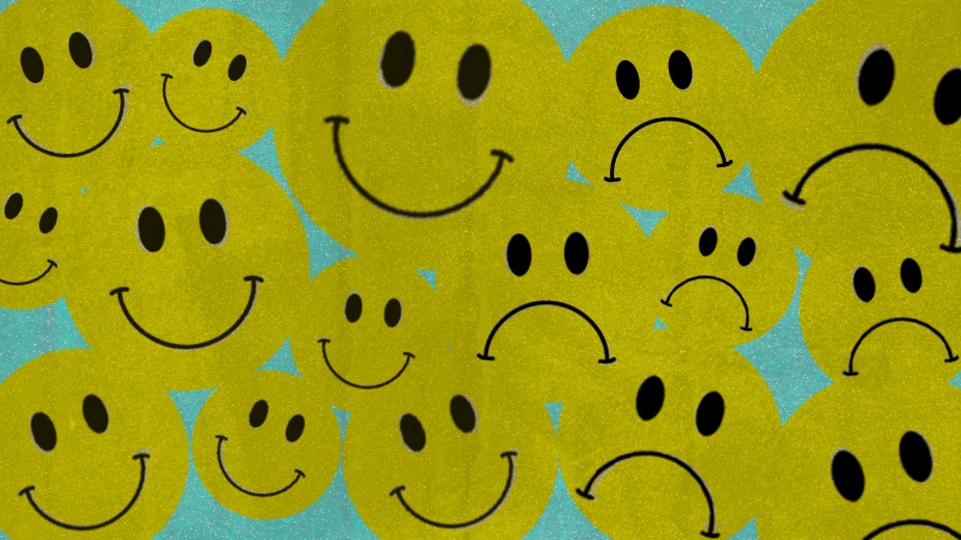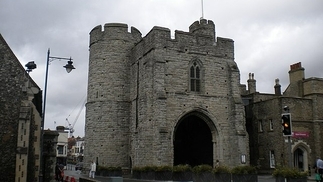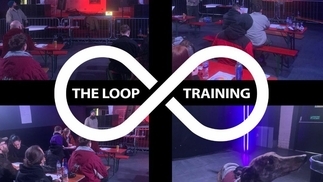The Loop is saving lives at UK festivals with its innovative harm reduction initiative

After the recent tragic deaths of two people at Mutiny Festival in Portsmouth, the issue of drug safety testing has been thrust into the spotlight once again. DJ Mag talks to Fiona Measham, founder of The Loop harm reduction organisation, about the work that they do and why some pill manufacturers are making their ecstasy so strong...
The whole point about harm minimisation is admitting that people are always going to take drugs, whatever anyone in authority says or does — so, recognising that, the best thing to do is to provide info so that they do so safely... is that right?
Fiona Measham: “Harm reduction is simply about reducing the harm from drugs — this could be by education, information, or specific services like needle exchange, drug safety testing or medically supervised injecting centres. It isn’t related to any specific drug policy regime or political philosophy and can run alongside pretty much any of them. However, clearly the less controlled drugs are, then the more likely they are to have variable contents and strength, and that will add to the problems of the psychoactive substance itself.”
What do you say to people who say ‘you’re legitimising something illegal’?
“We are clear that The Loop doesn’t condemn or condone drug use, it’s about providing free, confidential and non-judgemental information to people who have already decided to buy and take drugs. Drug safety testing is the last line of defence before someone puts that pill or powder in their mouth or up their nose — getting them to stop and say hold on, have you got any idea what is in that? So actually, drug safety testing reduces rather than increases drug use, although that might sound counter- intuitive.”

There have just been those tragic deaths at Mutiny Festival in Portsmouth – were they preventable?
“I wouldn’t comment on specific casualties without knowing the details. We have to wait for the inquests and toxicology reports for that. However, the more general point about deaths and doseage is that yes, we can do much more to address the increase in hospital admissions and drug-related deaths due to ecstasy pills and cocaine. We currently have the highest drug-related death rate in Europe and indeed that we ever had in the UK, so we need to address this now before more drug-users die."
"A key factor in the increased drug-related death rate relates to the increased purity, and therefore this is about getting accurate information to users about what is in circulation in their local markets. We tested a number of very high-strength ecstasy pills at Bristol festival Love Saves The Day the same weekend as the Portsmouth festival [Mutiny], and were able to put out alerts on social media as well as directly to festival goers in Bristol. A 300mg pill is only four times more risky than a 75mg pill if the whole pill is consumed. So the message is to ‘start low go slow’ and warn people that a quarter of an ecstasy pill at the moment could be equivalent to a whole pill five years ago. Dosage is so important — literally a matter of life and death — but if people don’t know the strength of the drugs then how can they dose appropriately? That is why drug safety testing is so important.”
In the local news a few people have been saying that Mutiny Festival should never happen again – do you agree?
“The issues we are facing don’t relate to a specific festival, they relate to the wider concerns about both the drug market and also about festival customer welfare. The Loop has already been invited to deliver our drug safety testing service at a number of Portsmouth events this year and Mutiny if it runs next year, and we would be very happy to be there. I have also championed the importance of free tap water on demand in my academic research and policy recommendations going back to the 1990s, and was the academic research director for the Home Office study that led to the 2010 Mandatory Conditions in the UK whereby all licensed premises now have to provide free tap water.”
Twenty-five years ago, when our scene was in its infancy, there seemed to be lots of peer-to-peer shared info and self- help literature around. Is there as much knowledge among young people now? Each new generation needs educating about the use of drugs, don’t they?
“Yes, this is definitely something that needs to continue year on year, for each generation. The problem we currently have is that harm reduction services have declined drastically since 25 years ago, with a shift in focus towards abstinence-based recovery services. We need both. One of the reasons that we set up The Loop (in 2013) was because we felt that UK harm reduction services were dwindling into non-existence after having led the world in this field."
“People should be able to access non- judgemental help, advice and information at any stage in their drug-using career. Nine in ten Loop service-users have never spoken with a healthcare professional about their drug or alcohol use before — so we know that we are getting through to a ‘hard to reach’ group and making an important connection. This can make a big diference to someone who is just starting taking drugs or just starting to have problems.”
"By manufacturing pills at four times the average strength, effectively a dealer will be reducing the volume of drugs, the risk of detection and also the length of sentence if caught and convicted by four”
Do you wish there could be drug-testing at every festival and club?
“I don’t think there should be testing in every club and festival, but in every town and city, as happens in the Netherlands with their publicly-funded national network of testing centres. This enables anyone to get substances of concern tested during the week — it lets people be proactive and plan ahead. Drug safety testing shouldn’t only be available to people who can afford admission to a nightclub or festival. So I was delighted that The Loop was able to introduce city centre drug safety testing to the UK in Bristol this year, and we will be offering a monthly testing service there from now on. We also expect to be able to offer this service to a number of other cities by the autumn time.”
What are the pill manufacturers up to? Why do they sometimes make pills so strong?
“Good question! There are a number of reasons. Manufacturers discovered a way to make cheap, strong pills using different precursor ingredients. Alongside this, in many jurisdictions, decisions around arrest for supply and sentencing will relate to the number of pills — so by manufacturing pills at four times the average strength, effectively a dealer will be reducing the volume of drugs, the risk of detection and also the length of sentence if caught and convicted by four.”

What is the main other work that The Loop does?
“The Loop offers welfare services, testing services behind the scenes at a number of festivals and events, and we also have an NHS-accredited training programme for event and local authority staff."
“Multi Agency Safety Testing (MAST) is our term for our drug safety testing service — it prioritises the collaborative partnership approach that we take, obtaining samples from on-site emergency services as well as the general public, and disseminating test results back to all on-site emergency services every day, as well as the individual service users. It also foregrounds customer safety — keeping people safe. The primary aim of MAST is to help reduce drug-related harm by informing everyone of what is in circulation in the local market and embedding harm reduction advice in that individual test result for maximum effectiveness.”
How have different police forces responded to the Loop initiative?
“All of the police forces that we work with are fully supportive. We only operate with the full support and at the invitation of the police and we work side by side with emergency services on-site, sharing intelligence and discussing test results of particular interest. If we find substances of particular concern then we put out Twitter alerts at @WeAreTheLoopUK — only after the event directors and police have agreed, and they then support and push on their socials too.”
Find out more about The Loop here: wearetheloop.org





